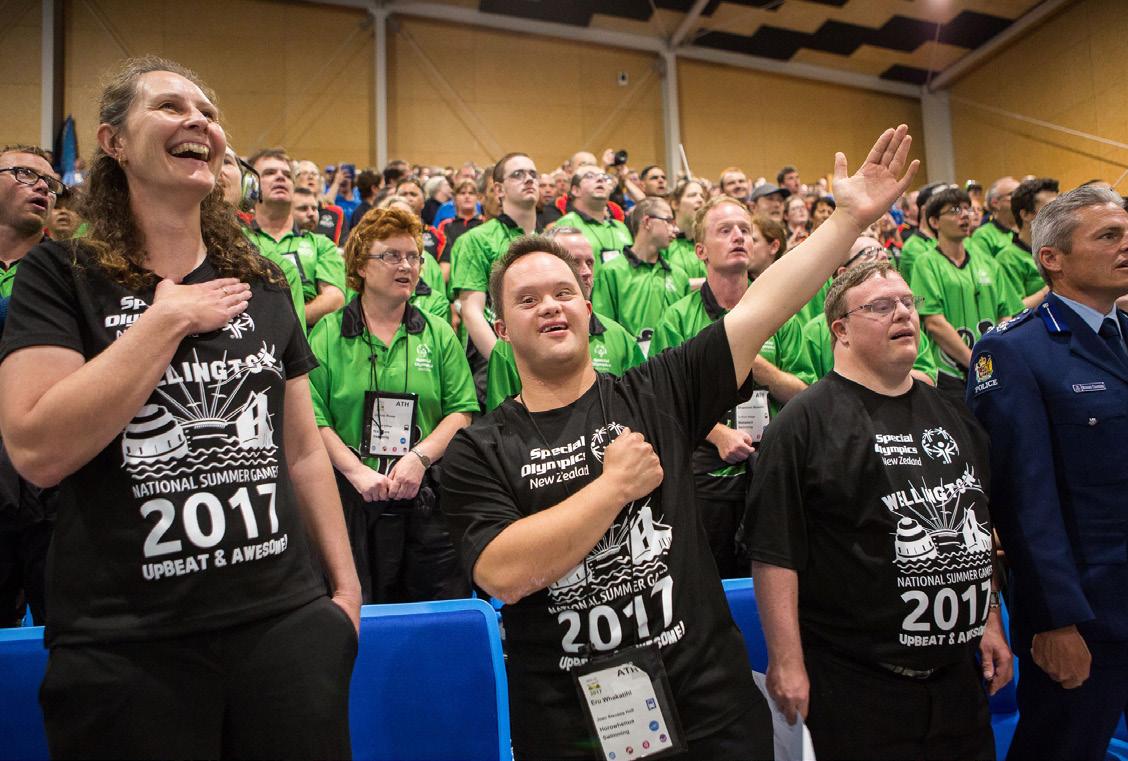
3 minute read
What is the Ministry for Disabled People?
By Sarah Paterson-Hamlin
Cabinet Ministers Sepuloni and Little in October announced a game-changer for disabled people and their whānau in New Zealand. Following years of pilot programmes and tentative steps towards embracing the Enabling Good Lives principles, the new Ministry will be guided by this philosophy. “Putting the voice of disabled people and their families at the heart of decision making is an approach that works, as we’ve seen with the Enabling Good Lives pilots in Christchurch, Waikato and MidCentral regions. “Enabling Good Lives empowers disabled people and their families to have more control and choice about the support they receive and that’s why we’ve committed to the national roll-out of Enabling Good Lives,” Andrew Little said.
What are the Enabling Good Lives Principles? Self-determination Disabled people are in control of their lives. Beginning early Invest early in families and whānau to support them; to be aspirational for their disabled child; to build community and natural supports; and to support disabled children to become independent, rather than waiting for a crisis before support is available. Person-centred Disabled people have supports that are tailored to their individual needs and goals, and that take a whole life approach rather than being split across programmes. Ordinary life outcomes Disabled people are supported to live an everyday life in everyday places; and are regarded as citizens with opportunities for learning, employment, having a home and family, and social participation - like others at similar stages of life.
Mainstream first Disabled people are supported to access mainstream services before specialist disability services. Mana enhancing The abilities and contributions of disabled people and their families are recognised and respected. Easy to use Disabled people have supports that are simple to use and flexible. Relationship building Supports build and strengthen relationships between disabled people, their whānau and community.
How will the new Ministry work? There is still a lot to be worked out and put through Parliament before the new Ministry becomes a reality – including what its final name will be – but we do know a few things already. We know it will be hosted by the Ministry for Social Development, so you can expect supports such as the Child Disability Allowance to be transferred over to the new Ministry with relative ease. We also know the new Ministry is charged with improving outcomes for disabled New Zealanders by moving away from fragmented and confusing support services. One big change we know about so far, is that this Ministry will be centralising the role of Needs Assessment and Service Coordination Services (NASCs). Hopefully, this will be a positive change that leads to a less confusing and inequitable model than the status quo. We also know that the Ministry will be supported by a new Accessibility Governance Board and a piece of legislation called The Accessibility for New Zealanders Bill, which are aimed at making Aotearoa more accessible. Will it improve the outlook for people with Down syndrome? There is certainly cause for cautious optimism. Programmes like Mana Whaikaha have seen some excellent results for people with Down syndrome and their whānau, and it is on the same Enabling Good Lives principles that these changes are based. The more of a voice we have in the next part of the process, the better the outcome will be for our community. It is important that we continue to monitor progress, submit on legislation when the time comes, and keep our eyes peeled for opportunities to be part of the consultation process. Carmel Sepuloni has said that ‘the disabled community’s voices will be embedded at all levels of decision-making, from the formation and running of the Ministry, to the development of accessibility legislation.” It is crucial that we hold the Minster and her colleagues to these words, and ensure that people with Down syndrome are included every step of the way. So stay tuned for more news from NZDSA about what we’re doing to make our voices heard in this next part of the process, and don’t be afraid to let us and the wider community know of any opportunities you come across to be involved!








